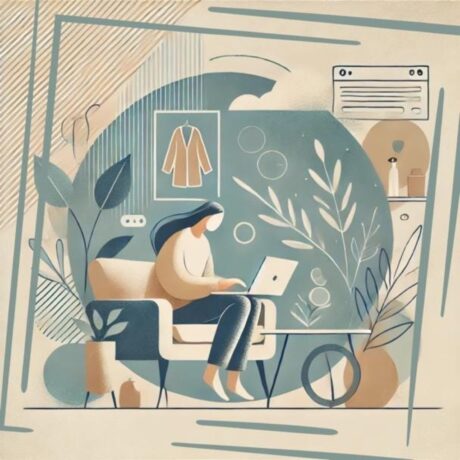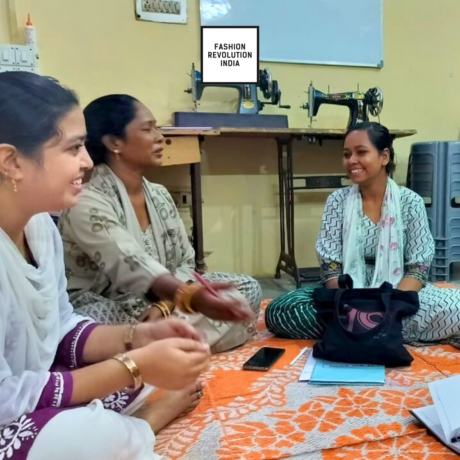5 years since the Rana Plaza tragedy, what’s changed?
April 2018 will be the 5th year anniversary of the Rana Plaza factory collapse and 5 years since Fashion Revolution was born. During that time, millions of people have joined Fashion Revolution to demand a fairer, more transparent industry. It is clear that brands are listening and we are holding them to account. To ensure they continue to listen and create the far reaching, permanent change needed to ensure we never see a tragedy like Rana Plaza again, we need everyone to join Fashion Revolution and keep asking one simple question: Who Made My Clothes?
What’s changed?
5 achievements in 5 years
- Last year 2 million people across the world got involved. Over 100,000 people used social media to ask the brands they wear #whomademyclothes
- Brands are listening and the industry is starting to change. 2,416 brands responded to our #whomademyclothes demands sharing information about their supply chain. Over 150 big brands have published their factories where their clothes are made.
- Producers, farmers, factories and makers in our fashion supply chains have become more visible through social media. Last April, over 3600 producers were heard, with our hashtag #imadeyourclothes. And conditions have improved. Hundreds of factories in Bangladesh are now safer places to work. More than 1,300 factories have been inspected since Rana Plaza and 1.8 million garment workers have received factory safety information.[1] 515 factories, 87% of garment exporters in Cambodia, have published data about their working conditions compliance.[2]
- Minimum wages for garment workers have increased in places like Bangladesh and Cambodia, but more still needs to be done. The Bangladesh government has delivered a 77% increase in the minimum wage to $68 per month for garment workers.[3]18 big brands and retailers have signed up to ACT to achieve living wages for workers with industry-wide collecting bargaining linked to purchasing practices.[4]
- Brands are starting to reduce the use of toxic chemicals and clear up their supply chain. Over 70 brands and suppliers have committed to Detox[5] by 2020 and remove harmful chemicals from their supply chains. Combined, these brands account for 15 percent of global textile production. Over 100 brands have committed to working towards a circular fashion system[6]. But our landfills still overflow with clothes, the industry continues to get bigger and move faster. We buy more clothes than ever before and wear them for half as long as we used to. This is why we need to make our #lovedclotheslast.
(see footnotes at bottom of page)
What’s new this year?
Manifesto for a Fashion Revolution
During Fashion Revolution Week, we will be publishing our ‘Manifesto for a Fashion Revolution’ with our clear demands for a better fashion industry of the future. It will contain 10 points which call for our clothes to stop exploiting people and destroying our planet. It will demand radical, revolutionary change.
Fashion Revolution will ask people to sign up to the Manifesto in order to demonstrate the urgent need for change.

Fashion Transparency Index 2018
Our third edition of the Fashion Transparency Index will publish a list of 150 of the biggest global fashion and apparel brands and retailers with how much information they share about their social and environmental policies and practices.
Brands have been chosen on the basis of their annual turnover, over $500 million USD and represent a spread of market segments including high street, luxury, sportswear, accessories, footwear and denim from across Europe, North America, South America and Asia.
We have seen that more and more brands are seeing the importance of publishing information about their suppliers and their codes of practice. This is a major step towards our demand for greater supply chain transparency. We’ve counted 152 across 32 parent groups that are disclosing at least some of the facilities making their clothes.
Fashion Open Studio
Fashion Open Studio is a worldwide showcasing initiative of interactive open studio events which takes place during Fashion Revolution Week. For the second time, this international calendar of presentations, talks, openings and workshops will shine a light on innovative emerging designers, established trailblazers and major players, who are finding alternative ways of producing fashion that is mindful of the planet and its resources. It is part of the globally recognised #whomademyclothes initiative. The industry is looking for answers and it is the smaller brands who are finding innovative new ways of doing things.
Katharine Hamnett, Burberry and Elvis and Kresse, Stella McCartney, Phoebe English, OneByMe, Kepler, Christopher Raeburn, Katie Jones are just a few names on board for the events which will take place globally during Fashion Revolution Week.
Orsola de Castro, Fashion Revolution Founder said:
“Fashion is a reflection of the culture we live in, so together we must change the culture that surrounds it into one that demands positive leadership, transparency, accountability, and better lives all round. The fashion industry should lead on ethics and sustainability.”
Carry Somers, Fashion Revolution Founder said:
“Five years ago, the Rana Plaza factory collapse shook the fashion world, and it ignited the world’s biggest fashion activism movement for a fairer, safer fashion industry. Since Fashion Revolution started, people from all over the world have used their voice and their power to tell brands that things must change. And it’s working. The industry is starting to change. More brands are being open about where their clothes are made. More manufacturers are making their factories safer. More producers are being seen and heard.But the story is far from over. We are only just getting started. We can’t stop until every garment worker who makes the clothes we love is seen, heard, paid properly and working in safe conditions.”
For further information and other ideas on how to get involved, visit www.fashionrevolution.org/get-involved

REFERENCES
[1] Bangladesh Accord on Building & Fire Safety source: http://bangladeshaccord.org/milestones/
[2] Since going transparent with this data, the number of critical violations in factories have decreased and compliance levels have increased showing that factories are becoming safer and workers are being treated better at work. Source: http://betterfactories.org/transparency/pages/view/17
[3] Garment Worker Diaries project found that in Bangladesh, Cambodia and India many garment workers are not even being paid a legal minimum wage, and a very long way from a living wage. Source: www.workerdiaries.org
[4] Action, Collaboration, Transformation launched by IndustriALL Global Union. Source: https://actonlivingwages.com/fact-sheet/
[5] Greenpeace’s Detox campaign is asking brands to go toxic-free. Source: https://www.greenpeace.org/archive-international/en/campaigns/detox
[6] 142 brands representing 7.5% of the global fashion market have signed the 2020 Circular Fashion System Commitment, which sets out four key targets to increase textile recycling. Source: http://www.globalfashionagenda.com/commitment
Cover image by Dorothee Baumann Pauly









